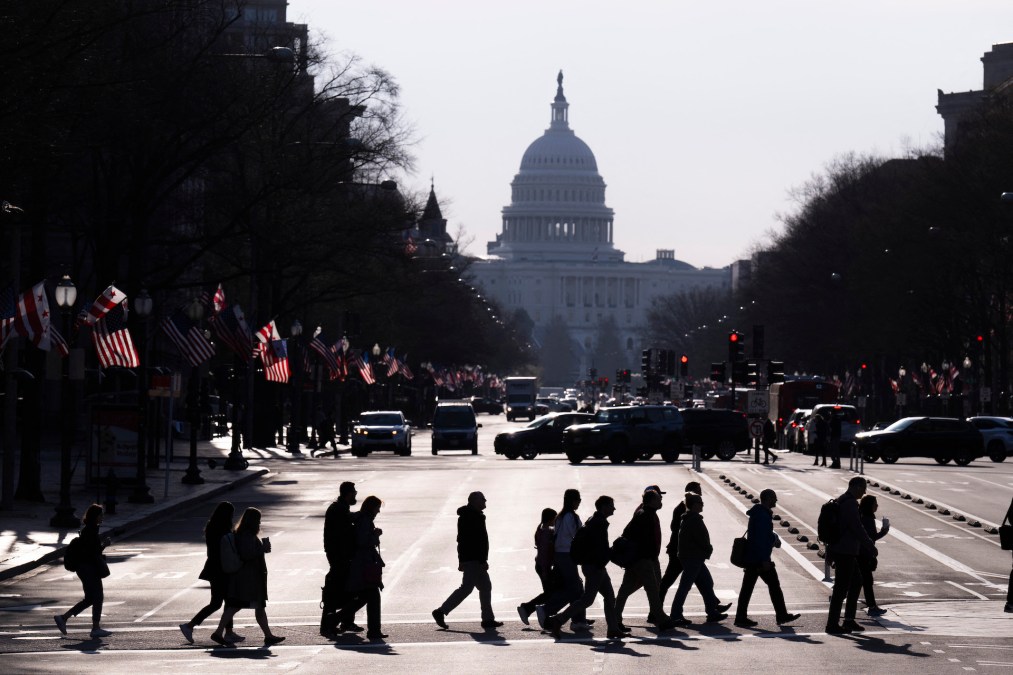We came in believing. We left in silence.

Government layoffs don’t just cut budgets — they cut belief.
Talented, mission-driven professionals — some who left lucrative private-sector careers, others tracking lifelong roads of public service to serve — are now being pushed out of the very institutions they fought to improve. These weren’t side projects or token hires. They were seasoned professionals, some with decades of experience, brought in to modernize critical systems, close digital equity gaps, and help rebuild trust in institutions that have too often failed the people they serve. When we lay them off, it sends a clear message: Innovation is expendable. And people feel it.
This isn’t a story about loss. It’s about what it takes to say yes to service — and why the door into government needs to stay open, especially for those who’ve had to work twice as hard just to reach it.
A long road to “yes”
I came to this country as a Cambodian refugee. I didn’t grow up with a roadmap to public service. My family didn’t have connections in Washington, and we didn’t understand the unspoken codes of federal hiring. But we believed in this country — and I believed that government should be open to anyone willing to do the work.
So I showed up. I waited months for onboarding. I filled out background checks that asked me to recall details from places I barely escaped. If you’re an immigrant or refugee, the clearance process isn’t just paperwork — it’s a trial of faith. You’re asked for documents you may never have had. You’re scrutinized for family ties to regions you fled. You’re questioned about timelines you barely survived. And all the while, you carry the quiet weight of knowing your origin story, not your ability, might be the reason you’re screened out.
And yet, we persist.
Because we believed in the opportunity to serve. We know that this country doesn’t just need the most polished resumes. It needs lived experience, grit, and people who understand government — not just as insiders but as everyday users of its services.
Because we believe that our experiences — our differences — are part of what makes this country stronger. We believe in the mission. And we’re willing to endure the gauntlet not for prestige or power, but for the chance to give back to the very system that gave us a second chance.
Because we believe this system doesn’t account for people like us — but it requires people like us. People with resilience, range, and a deep sense of mission.
And that’s why, even after all the waiting, the uncertainty, the second-guessing — I still said yes.
Not because it was easy. But because I believe the opportunity to serve — to shape the system from the inside — was too meaningful to walk away from. I knew that if I could make it through the door, I could help open it for others.
Why we still choose to serve
And I was fortunate because people believed in me. I had the opportunity to serve first at the Defense Digital Service (DDS), the Department of Defense’s “SWAT team of nerds,” where I worked on mission-critical programs like Project Rabbit in support of Operation Allies Refuge. Later, I returned to the department as the first-ever Customer Experience Officer and helped transform how our nation’s largest employer delivers digital services to those in uniform and those who support them.
The path wasn’t easy. But it was worth it.
What kept me going was the people: brilliant, mission-driven civil servants and digital leaders who believed that technology should serve the public, not the other way around. I was proud to stand beside them, bringing not just my experience from the tech world, but my lived experience as someone who knows what it means to build a life from nothing and still give back.
And now — even fewer seats at the table
As if the hiring process weren’t challenging enough, we’re now watching the table itself shrink.
Across government, layoffs, restructuring, and budget constraints are forcing talented, mission-driven professionals out of the very institutions they worked so hard to get into. Some of the most impactful programs, created precisely to bring in fresh perspectives and accelerate innovation, are being scaled back, defunded, or sunsetted altogether.
What’s worse is the ripple effect. Talented early-career professionals now see instability. Refugees and immigrants wonder if they were ever really welcome. Private-sector experts question whether the sacrifice is worth it.
This is more than just organizational reshuffling. It’s a loss of momentum and, for many, a loss of faith. We’re not just losing people; we’re losing trust, and that’s harder to rebuild.
The bar should be high — but the door should be open
I still believe in a high bar. These roles shape policy, security, and lives. They should demand excellence. But excellence and exclusivity aren’t the same.
Too often, our hiring systems reward familiarity over capability. They favor the polished, not the prepared. They assume that if you don’t speak the language of USAJobs or clearance investigations, you must not belong. That’s not merit — that’s legacy.
We can do better. We can build systems that uphold rigor and recognize resilience. That treats unconventional paths as assets, not risks. That makes space for the startup founder, the refugee, the self-taught technologist — the person who didn’t grow up imagining they’d work in government, but showed up anyway.
Final thoughts
Public service isn’t perfect. But it’s one of the few places where your work can outlive you.
I didn’t come from the system, but I was trusted to help improve it. I built things that mattered. I brought urgency where there was inertia. I advocated for the user when no one else was in the room. And I did it all with the perspective of someone who never expected to be let in and never took the opportunity for granted.
Keep the bar high. But keep the door open.
We can’t afford to lose them.
And we can’t afford to lose what they still have to offer.
This piece isn’t a eulogy. It’s a message to leadership: Don’t confuse short-term disruption with long-term disqualification. The people who were laid off aren’t gone — they’re watching. They’re weighing whether government will still make space for builders, reformers, and outsiders. If we let this moment pass without intention, we risk shrinking the very table we worked so hard to expand.






